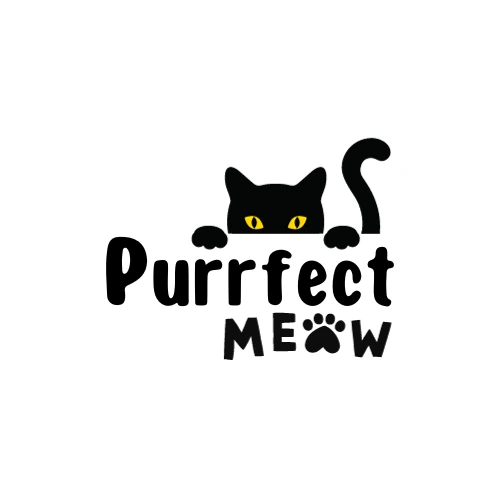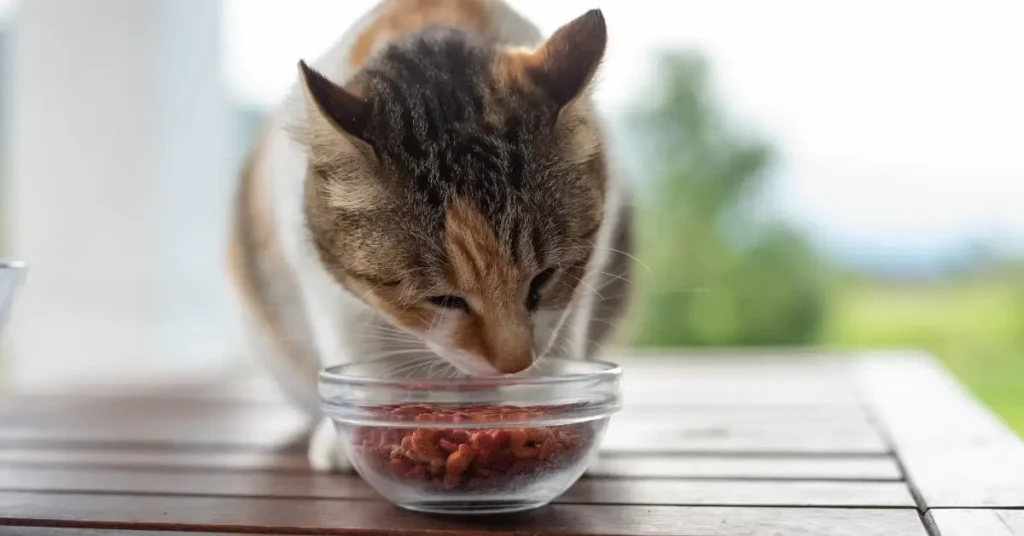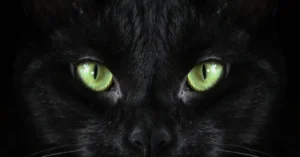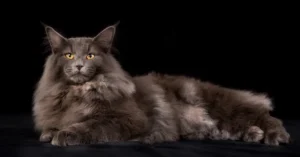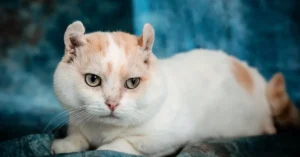Ever wondered why Digestive Health Cat Food is the talk of every cat lover’s circle lately? Well, let me tell you, it’s not just a trend; it’s a revolution in feline care!
Having a cat that struggles with digestive issues can be heart-wrenching. You watch them go from frisky and energetic to sluggish and uncomfortable, and all you want is to ease their discomfort. That’s where the magic of digestive health cat food comes into play.
This isn’t about fancy packaging or the latest fad. It’s about providing your fur baby with a diet that supports their digestive system, helping them to not only feel better but thrive. With the right blend of nutrients and prebiotics, these specialized foods are designed to tackle issues head-on, promoting a healthier gut and, consequently, a happier cat.
So, if you’re on a mission to boost your cat’s health from the inside out, you’re in the right place. Let’s dive into why choosing the best digestive health cat food could be the game-changer your kitty needs.
Understanding Feline Digestive Health
As cat owners, we all want our feline friends to be healthy and happy. One of the most important aspects of cat health is their digestive system. Proper digestive health is essential for cats to absorb the necessary nutrients from their food and maintain overall well-being. In this section, we will explore the feline digestive system, common digestive issues in cats, and signs of digestive problems.
The Feline Digestive System
Cats have a complex digestive system that is similar to that of other carnivores. The digestive process begins in the mouth, where cats use their sharp teeth to tear and chew their food. The food then travels down the esophagus and into the stomach, where it is broken down by stomach acid and digestive enzymes.
From there, the food moves into the small intestine, where nutrients are absorbed into the bloodstream. The remaining waste is then passed into the large intestine, where water is absorbed and feces are formed.
Common Digestive Issues in Cats
Like humans, cats can experience a variety of digestive issues. Some of the most common digestive problems in cats include vomiting, diarrhea, and constipation. These issues can be caused by a variety of factors, including stress, changes in diet, intestinal parasites, and chronic health conditions.
Signs of Digestive Problems
It is important to keep an eye out for signs of digestive problems in your cat. Some common signs include vomiting, diarrhea, constipation, loss of appetite, and lethargy. If you notice any of these signs, it is important to take your cat to the vet as soon as possible.
When it comes to maintaining your cat’s digestive health, choosing the right food is key. Digestive health cat food is specially formulated to support your cat’s digestive system and promote overall well-being.
Look for high-quality ingredients, such as lean protein and fiber, and avoid fillers and artificial additives. By prioritizing your cat’s digestive health, you can help them live a long, healthy, and happy life.

Key Nutrients for Digestive Health
When it comes to selecting the right cat food for digestive health, it is important to look for key nutrients that support your cat’s digestive system. Here are some of the key nutrients that should be included in digestive health cat food.
Probiotics and Prebiotics
Probiotics and prebiotics are essential for maintaining a healthy gut microbiome. Probiotics are live bacteria that help to maintain a healthy balance of microorganisms in the gut. Prebiotics are non-digestible fibers that help to feed the good bacteria in the gut. Including both probiotics and prebiotics in your cat’s diet can help to improve digestion and overall gut health.
Essential Vitamins and Minerals
Essential vitamins and minerals are important for maintaining overall health and wellbeing. Vitamin E is an important antioxidant that helps to protect cells from damage. Taurine is an essential amino acid that is important for maintaining healthy vision, heart function, and immune system function.
Omega-3 fatty acids are important for maintaining healthy skin and coat. Vitamin B12 is important for maintaining healthy nerve and blood cells. Potassium chloride is important for maintaining healthy muscle and nerve function.
The Role of Dietary Fiber
Dietary fiber is important for maintaining healthy digestion. Insoluble fiber helps to promote regular bowel movements and increase stool bulk. Soluble fiber helps to slow down the movement of food through the digestive system, allowing for better absorption of nutrients. Including both types of fiber in your cat’s diet can help to promote healthy digestion and prevent constipation.
When selecting digestive health cat food, it is important to look for a balance of these key nutrients to support your cat’s digestive system. By including probiotics and prebiotics, essential vitamins and minerals, and dietary fiber, you can help to improve your cat’s digestion and overall gut health.

Types of Digestive Health Cat Food
In this section, we will discuss the different types of digestive health cat food and how they can benefit your feline friend.
Wet vs. Dry Food for Digestion
One of the most common questions that cat owners ask is whether wet or dry food is better for digestion. While both options can be healthy, wet food is generally easier for cats to digest. This is because it contains more moisture, which can help prevent constipation and other digestive issues.
Grain-Free and Limited Ingredient Diets
Grain-free and limited ingredient diets for cats target specific dietary needs, reducing allergens and improving digestion. These diets focus on essential nutrients, omitting grains and using minimal ingredients to cater to sensitivities, promoting better health and energy levels. Ideal for cats with food sensitivities, they ensure a balanced intake without unnecessary additives.
High-Protein and Low-Carbohydrate Options
Cats are obligate carnivores, which means that they require a diet that is high in protein. Our high-protein cat food options are made with real meat and are designed to provide your cat with the nutrients they need to maintain a healthy weight and digestive system.

Special Considerations for Sensitive Stomachs
At [our company], we understand that digestive health is essential for your cat’s overall well-being. That’s why we offer a range of digestive health cat food products designed to cater to the unique needs of cats with sensitive stomachs. In this section, we will discuss some special considerations that you should keep in mind when selecting the right food for your cat.
Identifying Food Allergies and Intolerances
Food allergies and intolerances are common among cats with sensitive stomachs. Symptoms of food allergies include vomiting, diarrhea, and skin irritation. If you suspect that your cat has a food allergy, it’s essential to identify the allergen and avoid it. Common allergens include chicken, beef, and dairy products. Our range of cat food products includes hypoallergenic options that are free from common allergens.
Choosing Food for Cats with Chronic Conditions
Cats with chronic conditions such as inflammatory bowel disease require a specialized diet to manage their symptoms. Prescription diets are available that are designed to manage these conditions effectively. Our team of experts can help you choose the right food for your cat based on their specific needs.
The Importance of Easily Digestible Ingredients
Cats with sensitive stomachs require easily digestible ingredients to avoid digestive upset. Easily digestible carbohydrates such as rice and sweet potatoes are an excellent choice for cats with sensitive stomachs. Our range of cat food products contains easily digestible ingredients that are gentle on your cat’s digestive system.

Selecting the Right Food for Your Cat
As pet owners, we want to provide our furry friends with the best possible care. One of the most important aspects of cat care is selecting the right food for your cat. Proper nutrition is essential for your pet’s health and well-being, especially when it comes to digestive health.
Age-Specific Formulas
Cats have different nutritional needs at different stages of their lives. For example, senior cats may require different food than growing kittens. Therefore, it is important to select age-specific formulas that meet your cat’s nutritional needs. Age-specific formulas are designed to provide the right balance of nutrients for cats at different stages of life.
Consulting with Vets for Dietary Advice
Consulting with your vet is an excellent way to get dietary advice for your cat. Vets can provide you with expert advice on what type of food is best for your cat, based on their nutritional needs and any digestive disorders they may have. They can also recommend human-grade ingredients that are easy to digest and provide optimal nutrition.
Reading Labels and Ingredient Lists
Reading labels and ingredient lists is essential when selecting the right food for your cat. Look for high-quality ingredients, such as real meat, and avoid artificial preservatives and fillers. Also, look for formulas that are specifically designed for digestive health, such as those that contain probiotics or prebiotics.
So you have to know, that selecting the right food for your cat is crucial for their digestive health. By choosing age-specific formulas, consulting with your vet, and reading labels and ingredient lists, you can ensure that your pet receives the best possible nutrition.

Our thoughts about digestive health cat food
As pet owners, we understand the importance of feeding our cats a balanced and nutritious diet. One key aspect of maintaining our furry friends’ overall health is ensuring their digestive system is functioning properly. That’s where digestive health cat food comes in.
Digestive health cat food is specially formulated to support and promote healthy digestion in cats. These types of cat food typically contain high-quality protein sources, easily digestible carbohydrates, and added fiber to aid in digestion. Some brands also include prebiotics and probiotics to help maintain a healthy balance of gut bacteria.
When choosing a digestive health cat food, it’s important to read the label carefully and ensure that it meets your cat’s specific dietary needs. For example, if your cat has food allergies or sensitivities, look for a brand that is free from common allergens such as wheat, soy, and corn.
Another important consideration is the texture and size of the kibble. Cats have different preferences when it comes to the texture of their food, and some may struggle to eat larger kibble sizes. Be sure to choose a brand that offers a variety of kibble sizes and textures to suit your cat’s individual needs.
FAQ Digestive Health Cat Food
What can I give my cat for digestive problems?
If your cat is experiencing digestive problems, there are a few things you can do to help alleviate their discomfort. One of the best ways to support your cat’s digestive health is to provide them with high-quality digestive health cat food. Look for food that is specifically formulated to support digestive health, such as food with prebiotics and probiotics, which can help promote the growth of healthy bacteria in your cat’s gut. Additionally, you can try feeding your cat smaller, more frequent meals throughout the day, which can help prevent digestive upset.
Another option is to provide your cat with a digestive supplement or treat. These products are designed to support digestive health and can be particularly helpful if your cat is experiencing diarrhea, constipation, or other digestive issues. However, it’s important to talk to your veterinarian before giving your cat any new supplements or treats to ensure that they are safe and appropriate for your cat’s specific needs.
Can healthy cats eat gastrointestinal food?
While gastrointestinal cat food is specifically formulated to support digestive health, it can be beneficial for healthy cats as well. This type of food typically contains high-quality protein sources, easily digestible carbohydrates, and other nutrients that can help promote overall health and wellness. Additionally, gastrointestinal cat food is often lower in fat and calories than other types of cat food, which can help prevent weight gain and obesity.
However, it’s important to talk to your veterinarian before making any changes to your cat’s diet, even if they are healthy. Your veterinarian can help you determine if gastrointestinal cat food is appropriate for your cat’s specific needs and can provide guidance on how to transition your cat to this new type of food.
If you also would like to know something about the best cat food for urinary health have a look at our article.
If you are curious about cat dental health it would be a pleasure if you read our article.
What are your thoughts about digestive health cat food? Let us know in the comments.
